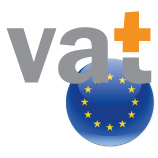amavat | VAT Registration Guide
Following on from our recent amavat® feature communication on our ‘VAT Registration Service’ let us go into a little more detail with our ‘VAT Registration Guide’.
When you have an established company, it is possible that you have registered for VAT, but it may also be necessary to obtain non-resident VAT Registrations in additional countries where you are trading.

VAT Registrations allow companies to charge and recover the applicable local VAT where appropriate for their company. In some countries, thresholds may be in place so that a VAT Registration is only required once the turnover surpasses an annual limit, but in numerous EU countries there are no thresholds for VAT Registration – it is vital that companies consult local VAT legislation to establish if they have a requirement to acquire a VAT Registration, this is where amavat® comes in.
Why would a VAT Registration be required?
- If you have online sales to private individuals;
- When you are running an event, conference or exhibition;
- Installing and Supplying and machinery;
- If you make supplies related to land situated in a particular country;
- If you make supplies to local customers from a warehouse based in another country;
- Importing goods; and
- If you open a warehouse.
Applications or VAT Registration
In order to secure a VAT Registration, an application must be made directly to the country where you are required to register. Local tax authorities will frequently have questions and queries surrounding this process, so it is often necessary to have local language skills to make sure you are making the correct decisions for your business.
How does your company attain VAT Registration Compliance:
1. You should review your international business activity
VAT legislation differs between countries, so it is vital that your business activity is looked over in each country where you are trading to ascertain whether a VAT Registration is applicable.
2. Obtain VAT Registration
If your business activity does make you responsible to register for VAT, it is vital that this is put in place as soon as possible, so that your business is able to invoice clients correctly, and avoid the risk of fines and penalties.
3. Check that your invoices are compliant
Once your company is VAT registered, you will require to charge the suitable VAT rate to your clients, and pay this to the local tax authority. Main things to consider include:
- Customer information;
- Supplier information;
- Transaction details;
- Exemptions; and
- The Reverse Charge.
4. You should ensure you are submitting the correct reports
Once registered your company will require to submit local VAT returns, also required may be Intrastat declarations and EC Sales Lists. Requirements for reporting differ between countries, as does the regularity of required reports.
5. VAT Payments and Reclaims
Where you are recovering local VAT incurred through your VAT return, it is vital to make sure that the VAT has been charged to you appropriately – if you have paid the VAT in error, you may have difficulties recovering it.
Where you need to pay VAT over to local tax authorities, you will require to contemplate the timescale for making international payments. There can be substantial fines and penalties if you miss your VAT payments.
Why not let amavat® look after all of the above for you? While you concentrate on your core business.
amavat® provides a one-stop-shop solution for VAT Compliance within Europe. We assist clients with a single point of contact that speaks their language and handles all VAT related issues with a standard and cost efficient approach.
If you have any queries or questions, please do not hesitate to contact amavat®.
To find out more information please visit www.amavat.eu




